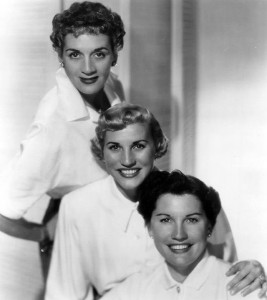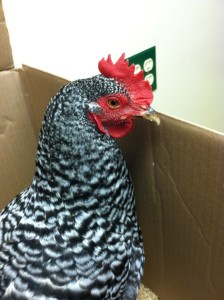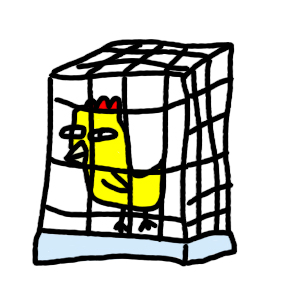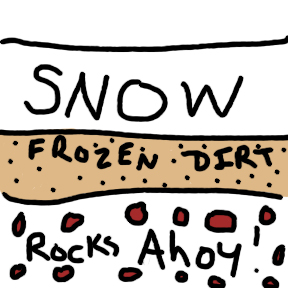And Then There Were Three
Friday, January 15th, 2016For a podcast that’s about chickens, I sure have been talking about cats a lot lately. I should probably warn you that I’m about to do it again, because we lost our big tomcat, The Bone, the other night.
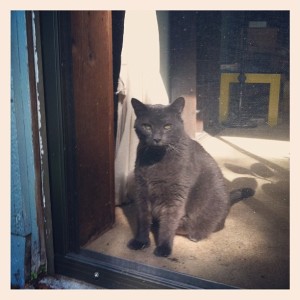
The Bone, watching the chickens in the yard.
I’m sure your first question is “why the heck is his name ‘The Bone?’.” That’s perfectly fair. His real name was Hamish, however, my feeling is that you often give people and things names because you have to, and then when you get to know them, you find their real name. He went from “Hamish” to “Hambone,” and then from there you may be able to see that “The Bone” is a logical next step. It stuck. I did try to take it one step further and make up a story that he was named after Leon Redbone and that we should refer to him as “Leon,” but that was a harder sell. So The Bone it remained. And if you met him, it would make sense. He was like The Fonz, in cat form. Ayyyy.
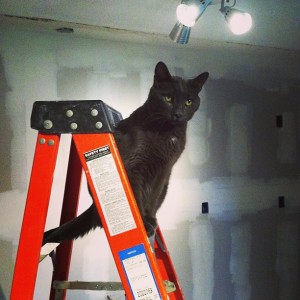
He was also helpful around the house.
When we got him, they thought he was about 6, but he had been living under someone’s porch, so they had no idea of his real age. We had gone to the shelter to look at this beautiful Maine Coon, but when we got there, he took one look at us and went into hiding. We then tested out every cat in the place. We needed one that was kid-friendly, and at one point my son, then about 2ish, just laid down on the floor and let cats crawl all over him. He was in cat heaven. There were some nice ones, but none of them really seemed like a good fit, or they had big chronic health issues that we didn’t think we’d be able to handle. Then we noticed this big gray fellow in a corner who had just been sitting there watching us. My son went over to say hello, and the cat stood up and immediately rubbed his face against my son’s, and that was all it took. We knew we had the one.
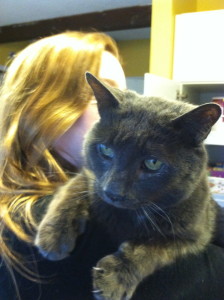
Perfect for hugging.
A few years ago, The Bone started to lose weight (he had become a fairly ample gentleman in his time with us) so we took him to the vet. They did a million tests, and found he had thyroid issues. This made his estimated age quite suspect, as cats don’t generally have thyroid troubles until their teens. So we figured he was maybe a few years older than we originally thought. With the thyroid issue treated, he put weight back on, but never got as big as he had been. Then in the past month he started to lose weight again. We brought him in, and all his bloodwork was fine. Then x-rays revealed that he had fluid in his lungs and abdomen, so he would need an ultrasound. The ultrasound doctor was hard to book, so we were waiting to hear, and then right at bedtime a few nights ago something was obviously wrong. The Bone was walking wobbly, and breathing heavily. My wife rushed him to the emergency vet, where it was determined he had congestive heart failure and a blood clot in his legs, that even if they could fix, would leave his back legs paralyzed, and they didn’t think they could actually fix it. And so we said goodbye.
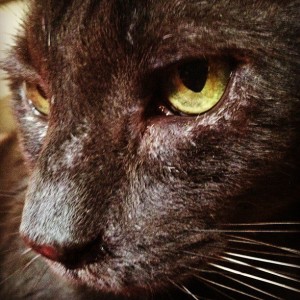
Such a handsome boy.
The Bone had also had a chronic sinus problem that caused him to blow large amounts of snot on you without warning. He was so charming no one ever cared. He was the calmest cat I’d ever met, but once cornered a 150 pound dog just to show who was boss. He loved going to the vet so much they had trouble hearing his heart because he was purring so loudly. There has never been a cat like The Bone, and I’m not sure there ever will be. But I’m happy we knew him for the short time we did.
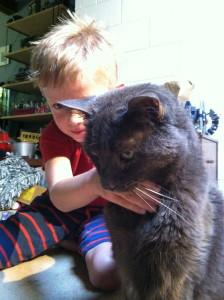
Adios, muchacho.
(CREDITS: Theme music: Chicken In The Barnyard by Fireproof Babies, Music Bed: Ruminants (Instrumental) by Lisa Germano)


